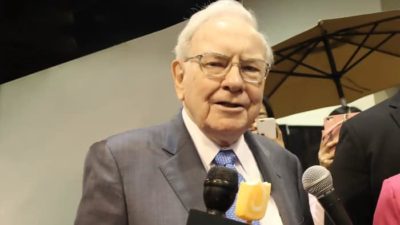This article was originally published on Fool.com. All figures quoted in US dollars unless otherwise stated.
Warren Buffett's Berkshire Hathaway Inc. (NYSE: BRKB) has long taken an interest in retail stocks and has often succeeded in the sector. One example is Costco Wholesale Corporation (NASDAQ: COST), which he bought more than 20 years ago and sold last year for a massive gain.
Today, Buffett holds positions in retailers such as Amazon.com, Inc. (NASDAQ: AMZN) and RH (NYSE: RH), formerly Restoration Hardware. Still, given the state of the companies and current conditions, only one of these Warren Buffett investments is likely to be more suitable for new buyers.
The state of Amazon
Amazon pioneered the e-commerce industry, eventually developing a reputation for "selling everything." However, with the development of Amazon Web Services (AWS), it also established the cloud computing industry, making this company a conglomerate.
Buffett took an interest in Amazon in 2019, buying roughly 10.6 million shares in two different lots. Soon after, the company prospered during the pandemic. Locked-down consumers preferred shopping online, while more remote business activity increased the demand for cloud services. But its retail operations experienced slower growth as consumers returned to more offline activities.
Amazon reported $222 billion in revenue in the first half of 2022, a gain of 7% versus the same time frame in 2021. It made modest gains in North America, though international revenue fell. Still, AWS continued to prosper as its revenue surged 35% over the same time frame to $38 billion, about 16% of Amazon's total.
Also, AWS was the only segment to report positive operating income. It earned $12 billion in operating income in the first two quarters of 2022 versus $7 billion for the company. Higher operating expenses led to a combined operating loss of $5 billion for the North America and international segments. Such results could partly explain why Amazon stock has fallen by nearly one-third from its 52-week high.
However, its price-to-sales (P/S) ratio is less than 3. While it is still pricier than Wal-mart Stores, Inc. (NYSE: WMT)at 0.6 times sales, it is near multiyear lows for the company, which could still make Amazon a buy.
How RH fares
Buffett began buying RH stock in November 2019. He started with about 1.2 million shares. The stock surged amid the pandemic, and early in 2022, he added another 1 million shares.
Unlike Amazon, RH is primarily a luxury retailer, selling furnishings and décor. In many respects, this looks more like a traditional Buffett investment than Amazon. He tends to like products that are always in demand, and his ownership of NFM (once known as the Nebraska Furniture Mart) gives him direct experience in that business.
Still, luxury furnishings might not hold as much appeal in a time of high inflation and sluggish economic growth. RH's recent performance seems to reflect that softness.
Revenue of about $1.95 billion in the first half of the year rose 5% compared to the same period last year. Still, most of that gain came in the first quarter as second-quarter revenue grew by under 1% year over year. Net income fell 10% during that time frame to $323 million. Higher selling, general, and administrative expenses, as well as losses on the extinguishment of debt, lowered profitability.
Investors have also heavily sold off RH. It has fallen by more than 60% since peaking in August 2021. Nonetheless, Buffett still holds a profit on his original positions in RH. Also, its P/E ratio of 9 is down from more than 75 early last year. That gives it a valuation that could draw the Oracle of Omaha to buy more shares.
Amazon or RH?
In the current environment, Amazon seems like a more profitable choice for investors. It is a more expensive stock by any measure and has not fallen by as much as RH. These two factors might make it seem like less of a Buffett stock.
However, unlike RH, it sells items that tend to appeal to consumers in a struggling economy. Moreover, its fast-growing AWS could still perform well since it cuts costs for its clients. That diversity and appeal in a variety of economic circumstances make it a more suitable choice.
This article was originally published on Fool.com. All figures quoted in US dollars unless otherwise stated.









